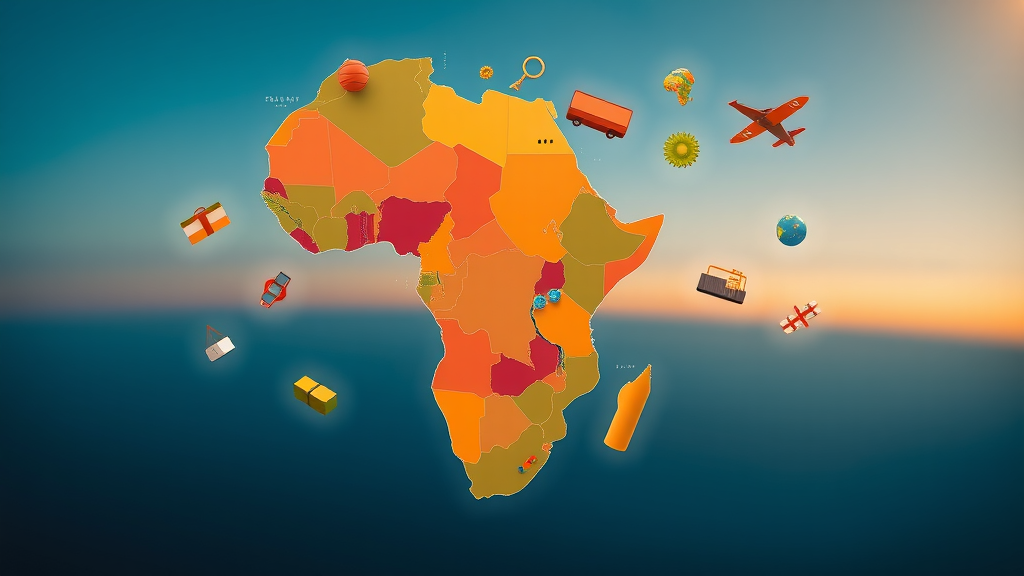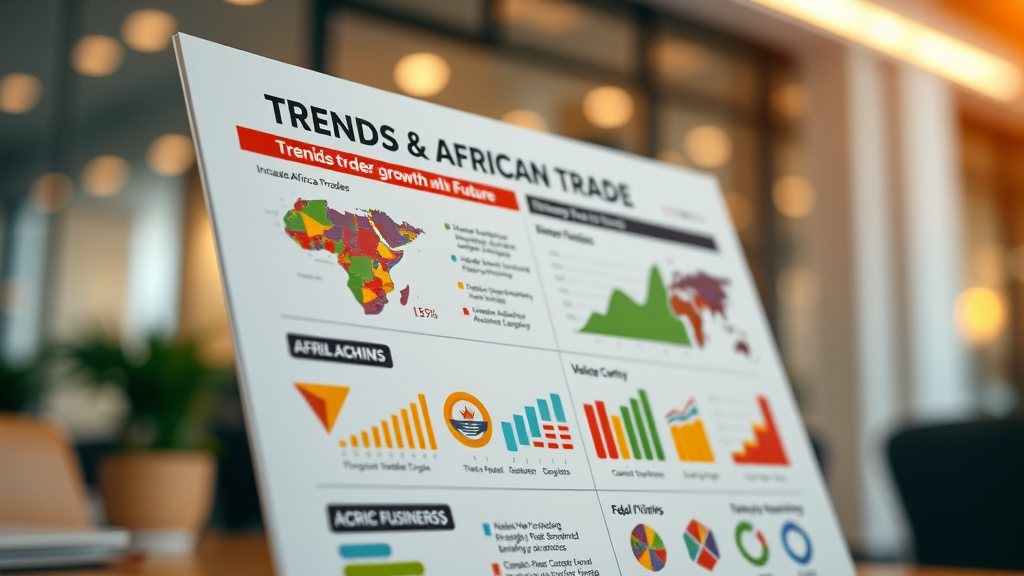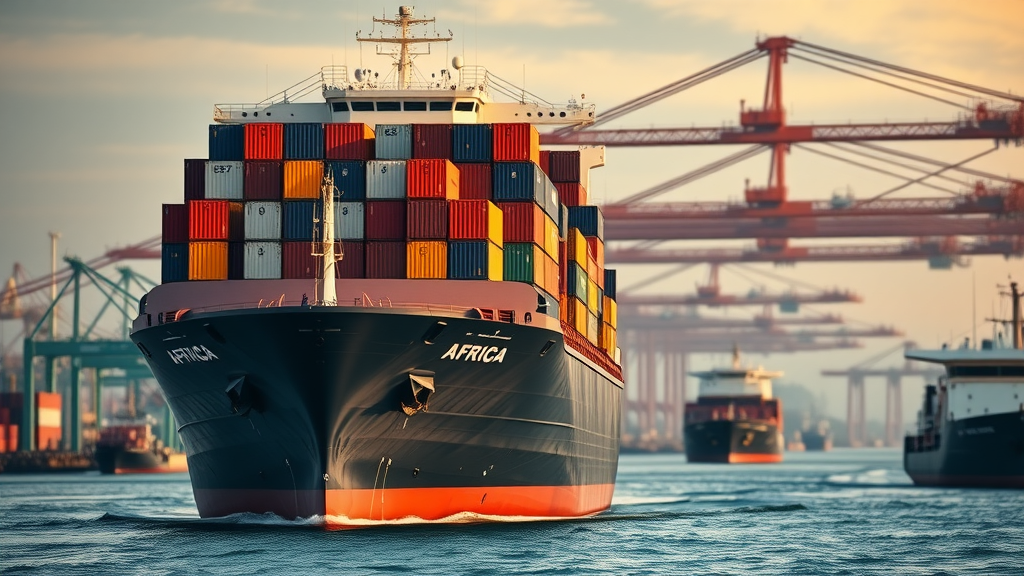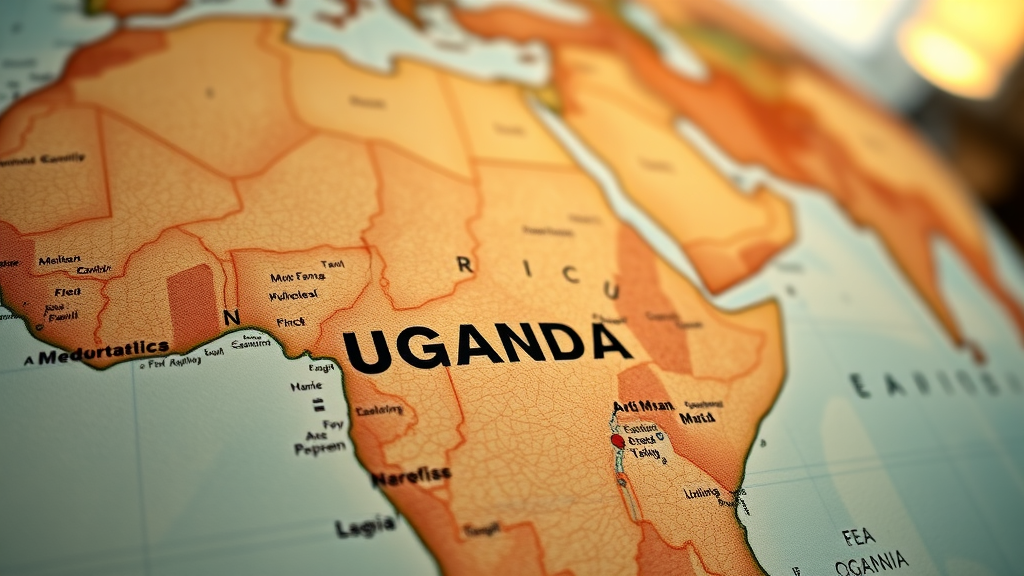Have you ever wondered how the economic landscape in Africa is evolving and the role that partnerships like FEDA play in this transformation? This exploration into African trade trends reveals not just statistical data but also the essence of collaborative efforts set to redefine commerce on the continent. As FEDA expands its footprint, it heralds significant opportunities for growth and prosperity in various sectors.
Overview of African Trade Trends
Africa's trade dynamics have undergone substantial shifts in the past few years, driven primarily by increased regional cooperation and a burgeoning focus on intra-African trade. The African Continental Free Trade Area (AfCFTA) has laid down a framework that aims to reduce tariffs and increase trade among African nations. This initiative, coupled with investment from entities like FEDA, underscores a promising trend towards greater economic collaboration.
Statistical data shows that African nations are emphasizing value-added exports rather than raw material exports, which traditionally dictated trade dynamics. As a continent rich in resources, the shift towards processing and manufacturing signifies a new era focused on sustainable growth. This alignment towards African trade trends reflects a collective understanding that development hinges on local value addition and comprehensive trade strategies.

The Role of FEDA in Shaping African Trade
The Fund for Export Development in Africa (FEDA) has emerged as a pivotal catalyst in shaping these trends. Designed as the impact investment arm of Afreximbank, FEDA’s primary aim is to enhance equity and quasi-equity investments across diverse sectors that stimulate intra-African trade. Its establishment reflects a commitment to providing long-term sustainable solutions to the continent's trade financing issues.
Significance of Uganda's Accession to FEDA
Uganda's recent accession to FEDA is a landmark event, serving as a testament to the country’s confidence in FEDA’s mission and its potential to accelerate African trade trends. As highlighted by Marlene Ngoyi, CEO of FEDA:
“Uganda’s decision to join FEDA is a testament to the country’s confidence in FEDA’s mission and to its commitment to accelerating Africa’s economic transformation.”

Impact of FEDA on Economic Development
FEDA’s influence transcends traditional trade roles; it actively fosters economic development across African nations by facilitating access to investment opportunities. The organization's strategic focus on sectors such as manufacturing, agribusiness, and technology highlights its role in reshaping African trade trends and boosting local economies.
Investment Opportunities in Manufacturing and Exports
By promoting investments in manufacturing, FEDA equips African nations to build solid industrial bases that will, in turn, empower the growth of exports. This not only creates jobs but also paves the path for economic advancement and resilience amidst global economic uncertainties. For more insights on how logistics can enhance trade routes, explore the Hanseatic Acquisition of CNMP.

Long-term Capital for African Economies
FEDA’s initiatives are pivotal in unlocking long-term capital needed for sustainable growth in Africa. The financing of over $813 million toward public and private sector projects in Uganda speaks volumes about FEDA's commitment. This trend of equitable financing is vital for developing industrial capacities and improving the export landscape.
Challenges and Opportunities in African Trade
While opportunities abound, challenges, such as trade barriers, persist. Understanding these aspects is crucial for stakeholders—governments, businesses, and investors—to navigate the complex landscape of African trade trends.
Barriers to Intra-African Trade
Despite the momentum towards intra-African cooperation, structural barriers persist. Issues such as inadequate infrastructure, customs inefficiencies, and regulatory challenges often inhibit seamless trade. Tackling these barriers is essential for optimizing the potential generated by partnerships like FEDA. Learn how strategic partnerships can accelerate trade processes in the WFS and Kuehne+Nagel Partnership.

Potential for Growth in African Markets
The burgeoning demand for diverse products across Africa presents a significant opportunity for market expansion. Harnessing these trends allows nations to leverage their unique strengths and diversify their economic landscapes.
Expert Insights on Future Trends in African Trade
Expert opinions consistently highlight the importance of partnerships and collaborations in driving African trade trends forward. Ambassador Philip Rukikaire articulates this vision:
“By joining FEDA, we reaffirm our dedication to a prosperous Africa, driven by industrialization and intra-African trade.”
What You’ll Learn About African Trade Trends
Key Takeaways from FEDA's Growth
This exploration into FEDA’s growth emphasizes the crucial intersections of investment, policy, and cooperation in driving African trade trends. As the partnership expands, so will opportunities in manufacturing and export development—a key driver of economic independence and resilience.

People Also Ask
What is the main trade in Africa?
The main trade in Africa encompasses various commodities, including agricultural products, minerals, and manufactured items, reflecting the continent's diverse economic landscape.
What is the trade potential of Africa?
Africa has vast trade potential, particularly in intra-African trade, as barriers diminish and markets increase access to local and international products.
What are the future trends in Africa?
Future trends indicate a greater shift towards sustainable practices and value-added industries, focusing on quality over quantity in trade.
What is the fastest growing market in Africa?
The fastest growing markets in Africa often relate to technology, manufacturing, and agricultural sectors, driven by youthful populations and increasing investments.

Conclusion: The Future of African Trade
As FEDA continues to pave the way for trade and economic collaboration in Africa, the growth trajectories of member nations present a promising outlook. Leveraging joint efforts, particularly in manufacturing and value addition, Africa stands poised to redefine its economic narrative.
Call to Action
To delve deeper into the potential of African trade and the role of FEDA in shaping the future, watch our enlightening discussion on the impact of FEDA on African trade and economic development below:





 Add Row
Add Row  Add
Add 






 Add Row
Add Row  Add
Add 

Write A Comment